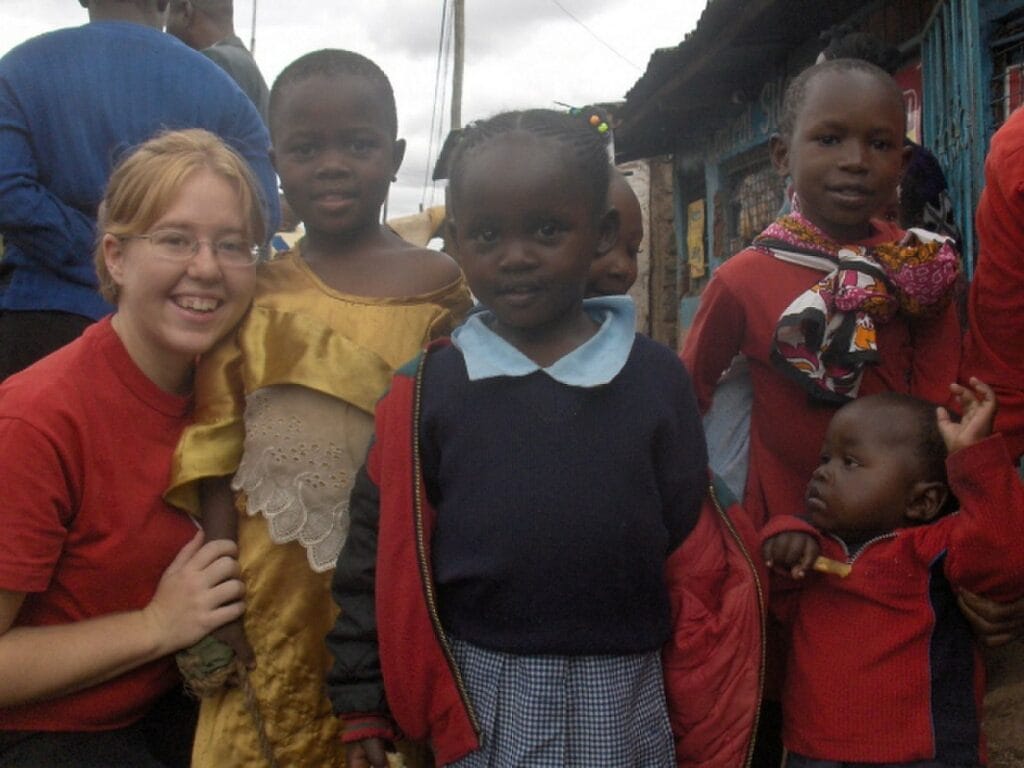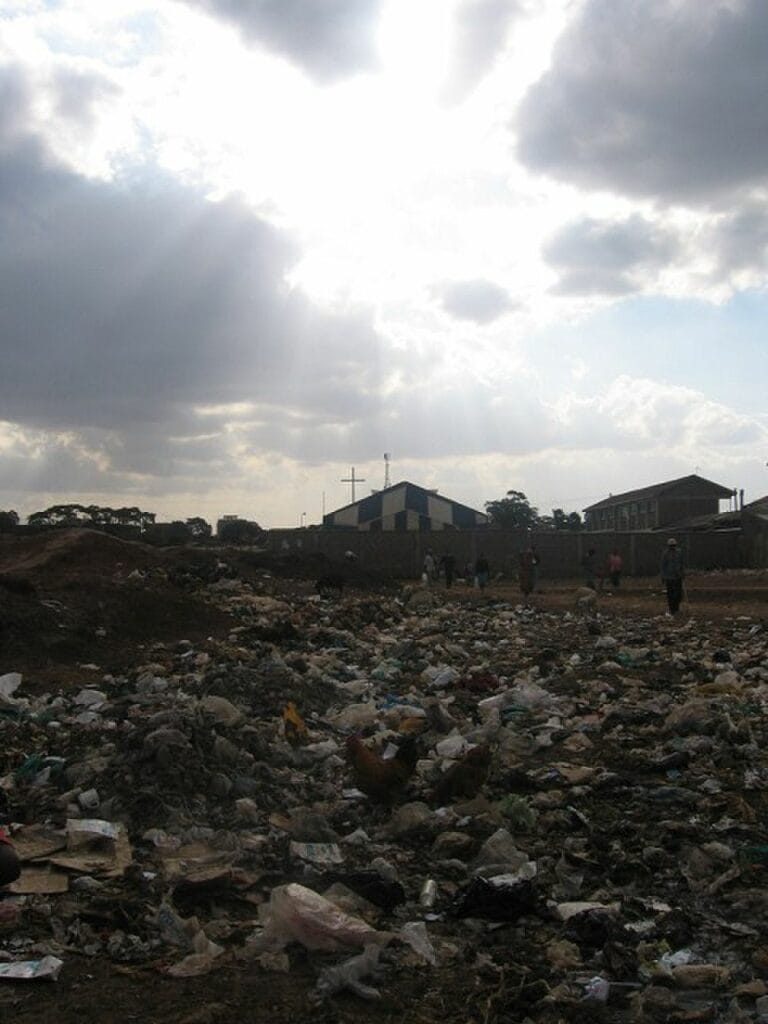 About four years ago, on a trip to Zambia, I was introduced to a man named Roderick who was about thirty. Roderick’s story was heartbreaking. After serving in the Zambian military, he hoped to return home to his wife, Beatrice, but was instead falsely accused of plotting against the government and thrown into prison. Beatrice gave birth to their son, John, while Roderick was imprisoned. After several
About four years ago, on a trip to Zambia, I was introduced to a man named Roderick who was about thirty. Roderick’s story was heartbreaking. After serving in the Zambian military, he hoped to return home to his wife, Beatrice, but was instead falsely accused of plotting against the government and thrown into prison. Beatrice gave birth to their son, John, while Roderick was imprisoned. After several
years Roderick was cleared and released, only to come home to a wife and child living in poverty. The next few years were grim as they had more children and struggled to support them. They tragically lost one child to cerebral malaria. Meanwhile, they literally had nothing – no income, no food, no health care, and no opportunities. But Roderick and Beatrice were hardworking and clever. The one possession they had was a small hair dryer, so they started a haircutting business to earn a few dollars. World Vision staff, impressed by their initiative, looked past Beatrice and Roderick’s poverty and saw instead their assets. They were industrious and entrepreneurial, willing to work hard. So instead of giving them food and other things, World Vision gave them a small loan for an idea they had. Their idea? They would buy bolts of cloth and tie-dye them in hopes of selling the cloth to women who made their families’ clothing. I have to admit I was sceptical. How in the world would this couple ever sell enough cloth to make a living? I had spent a career in consumer product marketing and knew a bad idea when I saw one. This idea seemed like a loser to me in a place where there seemed to be no market at all for tie-dyed cloth. Even after they presented me with a beautiful bolt of fabric to take home to my wife, I only felt pity for them, knowing their business would likely fail.
Just two months ago I returned to Zambia and had an opportunity to see Roderick and Beatrice again. It had been four years since they started their little enterprise. I was stunned. Their tie-dye business had
succeeded. With the money they saved, they paid back their loan and then started a small storefront to sell food, diapers and other sundries. One store had turned into two, and they hired their first employee. Roderick then was able to get connected to the electric grid and he started a welding business. Once on the grid, Roderick began charging car batteries overnight for a fee. (These batteries are often used for home electricity by people who can’t afford to be on the grid.) Next door he built a Cel-Tel station, where those with cell phones can buy their minutes. He then built a long building out of
scrap lumber and tin; filled it with benches; bought a TV, DVD player, and a satellite dish; and opened the first movie theatre in his community. Not only did he show movies, but he also received all of
the professional soccer matches, which the men of the community gladly paid to see. When I visited, he was showing – I kid you not – `The Jesus Film’ in the middle of the day to about ten paying customers.
During my visit, Roderick took me to a concrete slab with a roof over it that he had just built. The next week, he said, a pool table would arrive, and the first community pool hall would open – a good thing,
he explained, because it helped keep the younger men occupied and out of trouble. The young men in his community looked up to Roderick.
In all, Roderick and Beatrice, a couple I had pitied just four years earlier, now had eleven different businesses! When I first met them, I had seen only their deficits, not their assets – a mistake I will
never make again.
I wanted to test Roderick’s values, so I asked him a question. “Roderick,” I said, “you are now a rich  man. What are you going to do with all your newfound wealth?” Roderick thought for a moment, and
man. What are you going to do with all your newfound wealth?” Roderick thought for a moment, and
then told me that he had been teaching a Sunday School class at his church for many of the orphans in his community. There are forty-one in his class, and he has committed to visiting each one at his or her
home twice a month. Then he said, “God has been good to us, and with His continued blessings I hope to build a school for the orphans. Pray that he will allow me to do this.” Roderick was paying it forward. He rather reminded me of Jimmy Stewart in the classic Christmas movie `It’s a Wonderful Life.’ His solid example and caring spirit were changing the lives of others. In fact, the whole community seemed more alive than it had four years before. With Roderick and Beatrice as role models, others had begun to believe that it was possible to succeed, and they were following their leaders’ example. One couple’s lives and faith were lifting and inspiring an entire community – unleashing the potential that had been there all along.
There is no space here to do justice to all the various theories on why people are poor and how they can move toward wholeness but it is important for you to understand that poverty is highly complex and that there are no simple and quick fixes. And when we prescribe one particular “pill” because we see just one particular symptom, the poor never seem to get well. In fact, they find themselves gulping down handfuls of pills prescribed by too many would-be doctors with too little understanding of their lives. The poor are not lab rats on whom we can experiment with our pet theories; they are human beings with rich cultural and personal stories of their own. They have hopes and dreams, tragedies and triumphs in their lives. They need us to love them first and then listen to them. They need us to see their assets and their God-given abilities. When we see them as God sees them, we will glimpse His image in their faces – Christ in His most distressing disguise.









great story. thanks for passing it forward 😉
I was very impressed with the lesson here and sent this to my daughter in Florida who is trying to start a Women’s and Children’s Center there. VIP “love them first” is so- so- so inclusive of aiding and witnessing. Thank you for sharing this.
Sue
so basically everyone should go out and buy ‘The Hole in our Gospel’ so i dont get into too much trouble for quoting samples… ha ha – great story hey? rock on
love b